Elizabeth Barnes of Buffalo, New York, has held down a job since she was 15, and has worked hard to support herself over the years. But when she was 41 years old and with a young daughter to support, she was given a diagnosis of Parkinson’s disease, which forced her into early retirement and ultimately caused her to become homeless. In April of this year, Barnes received a Housing Choice Voucher (still known as Section 8) and excitedly began looking for a new home, but found that the voucher was not the blessing she had hoped for.
Again and again, landlords told Barnes that they would not accept Section 8. Despite the fact that her voucher was a legal source of income and with it she could afford the rent, she was refused housing. One landlord even told her, “I don’t rent to those type of people.” Landlords would brazenly explain to Barnes that they were refusing her because they didn’t want to carry out the inspections associated with Section 8, or they believed tenants who use Section 8 vouchers are “difficult.” Some landlords even complained about past tenants who were single mothers who supposedly couldn’t control their children.
Landlords often use source of income as a proxy for other illegal forms of discrimination, such as disability, familial status, or race. “It was very disheartening, to say the least, and it’s frustrating. I felt like I had to validate my existence, to beg them,” explained Barnes. “Nothing could have prepared me for how I felt in that moment, the rejection and the lowness I felt in that time.”
[Related: The Answer–Can Prohibiting Source-of-Income Discrimination Help Voucher Holders?]
Due to source-of-income discrimination, Barnes wasn’t able to find housing in the neighborhoods where she wanted to live. Today, she lives in a transitional women’s shelter in Buffalo. While the shelter accepts her housing voucher and has provided her with a home for the short term, it’s not a permanent solution.
Barnes’s experience is troubling, but not unique. In many New York municipalities, source-of-income discrimination is legal—and even where it’s outlawed, enforcement is a challenge. Landlords across the state frequently deny housing to people with legal sources of income in the form of Section 8 housing vouchers, child support, or other non-wage income. In New York, more than half a million low-income residents who use some form of federal rental assistance to pay for housing are at risk of being turned away.
After three weeks of non-stop apartment hunting, Barnes joined the Statewide Source of Income Coalition on a trip to Albany to advocate for the New York State Assembly to take legislative action to end source-of-income discrimination. Gov. Andrew Cuomo has since announced a bill that would include source of income as a protected class in state human rights law. Assemblyman David Weprin then introduced the bill with support from his colleagues Walter Mosley and Latoya Joyner, as Assembly Bill 10610.
Source-of-income discrimination should be a nonpartisan issue. It affects the most vulnerable New Yorkers—seniors, people with disabilities, veterans, single mothers like Barnes, and others. After passing the bill, the state legislature can pave the way for a statewide law that will end this practice for good.

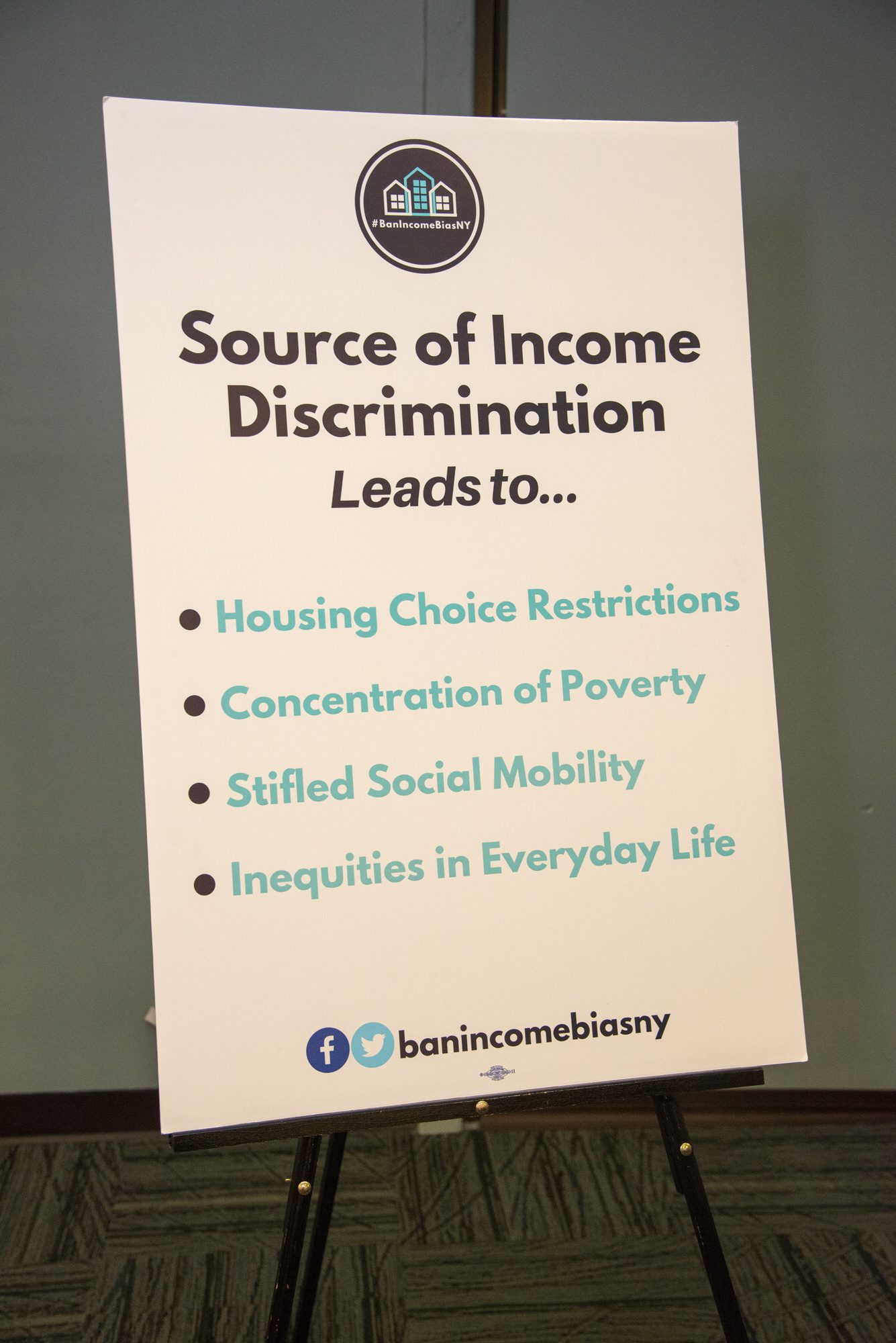
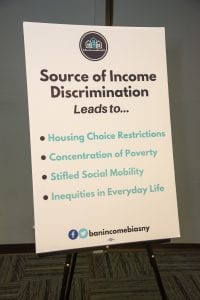
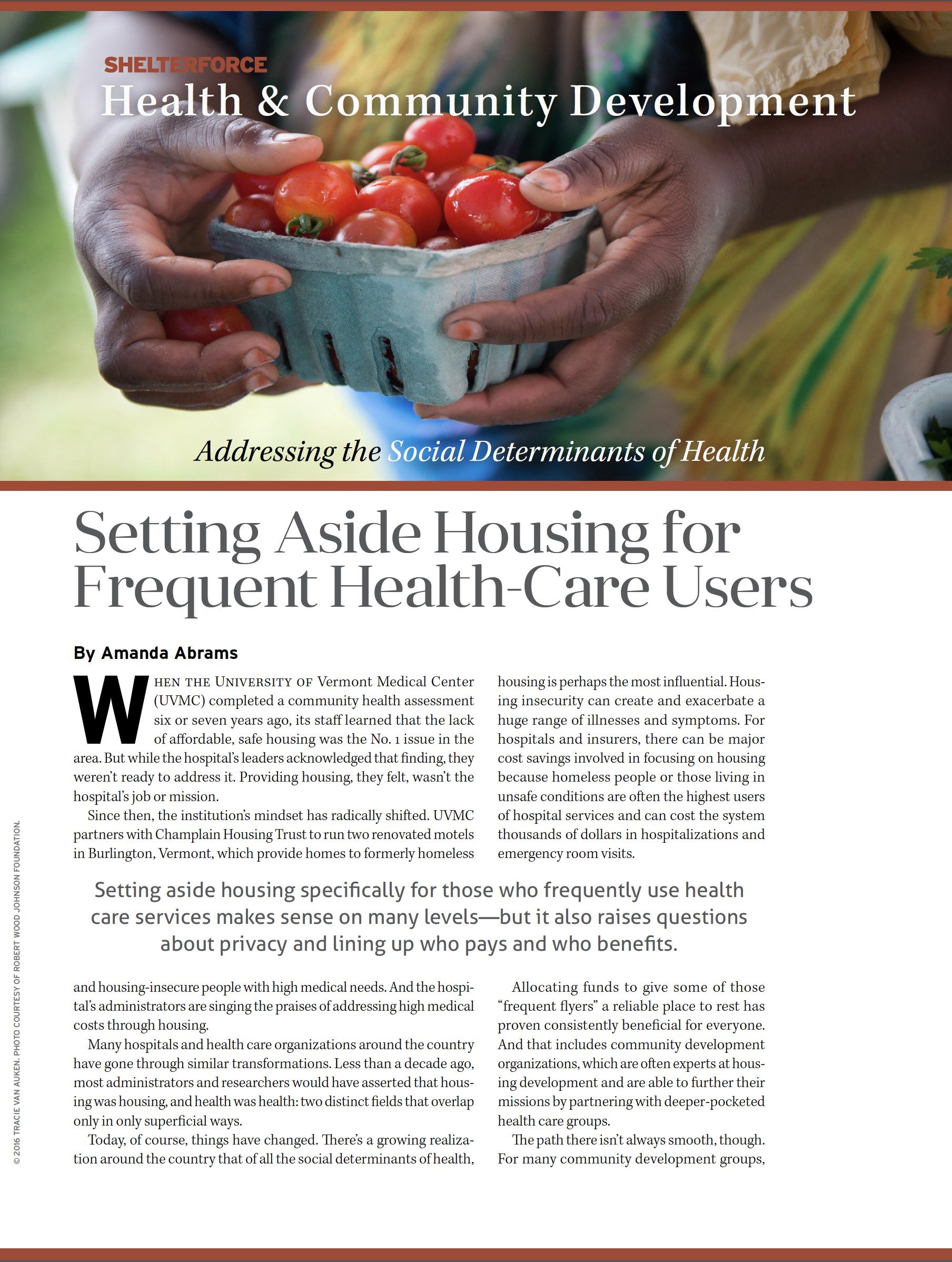
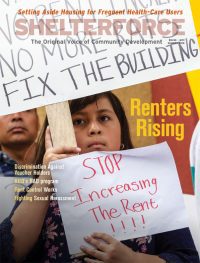
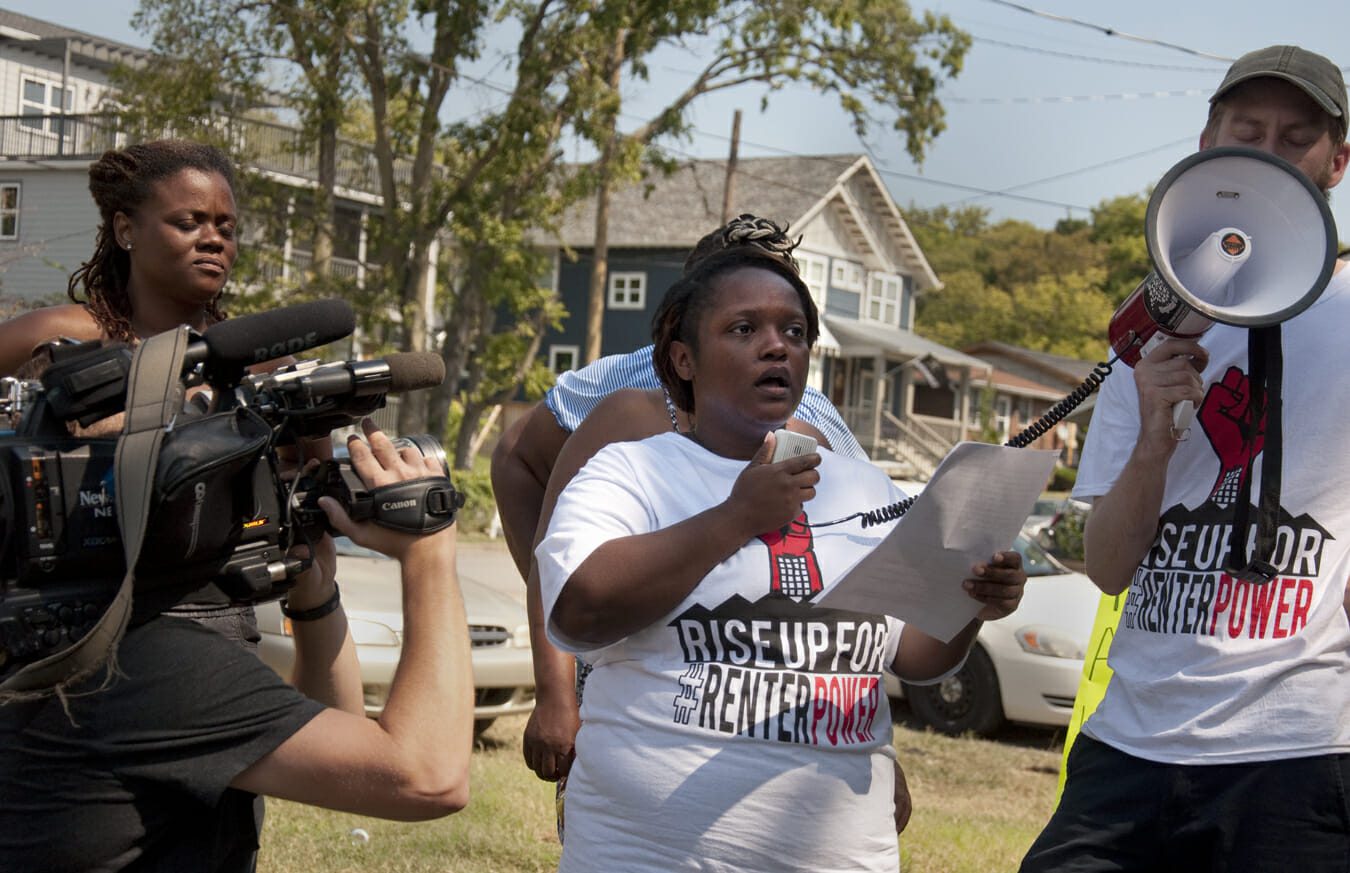
I hope more clients of section 8 vouchers read this article . I had section 8 for several years due to chronic disabilities. I was an excellent renter. Yet I too was a victim of HUD workers and inexperienced property managers. I lost my voucher thru my workers error and then illegal decisions after portability. My 16 year old and I became homeless. Lost enormous amounts of money. ( not that I had any)…Could not believe HUD would intentionally do this to anyone. But it turned out that both cities were intentionally denying us housing. My 16 year old never recovered from the emotional damage of what occurred & kept happening. Then I began to meet mothers who had gone thru something similar. We were single mothers, chronically disabled & had no resources. It is criminal to my mind.
I need to join this group because i’m experiencing the same problem here in Detroit, MI. The Detroit Housing Commission is the WORST Housing Authority ever and H.U.D doesn’t give a damn about anyone with these vouchers and they expect you to live anywhere. I was even told by an employee, “You need to live where ever you can and i don’t know what you mean by clean and safe areas”.
I would like to also add that Source Of Income Discrimination doesn’t exist in Michigan and it should be. I was at my last home 10 years then when the Landlord decided she didn’t want to fix the violations i had to move. Now i’m on my 7th time moving due to a shady Crooked Property Manager who had no License to be praticing and the Detroit Housing Commission knew this yet threatened to terminate me from the program if i didn’t sign the bogus Lease and start paying rent. They allow inspections to pass when they shouldn’t and protect the Slumlords and the Slum Property Manager. I’ll be losing my voucher next month due to not being able to find decent housing. If anyone ever noticed the only homes available for Section 8 vouchers are in crime ridden areas and the nicer homes in the decent areas don’t want to accept it like alot of Landlords here don’t want to deal with the Detroit Housing Commission at all.
This goes against the stated mission of vouchers, which is to integrate neighborhoods and provide safe housing. It is true that most landlords will NOT participate, and we can’t really blame them too much if they hate the gauntlet they have to go through to participate (but can blame them for their stigmatizing attitudes). They don’t want to go through 2 months of application/waiting for approvals, only to be denied or find there is an issue, and have to start all over again. The inspections can be arbitrary, as can be the setting of rent, with the amounts of utility allowance unclear. And this “dance” can leave participants who are just trying to move homeless…it is practically impossible to ever move in this system, particularly because one only has 60 days to find a place, and finding a place is rare. And if you don’t find one, you are homeless. In my county, of hundeds of thousands of people, there are about 2 or 3 pages of voluntary landlord leads. Most of them are large privately owned “projects” where the owners specialize in affordable housing, pay staff to deal with it, and warehouse a bunch of unfortunate, put-upon, sometimes endangered, tenants, whose units still pass inspection.. But 99.9% of other, smaller landlords find it too arduous a process.
You can’t see ALL of it as a form of income discrimination, because that is the very problem, it is NOT just an income, it is a complicated, horrible process in which landlords are required to participate to obtain that money, and you really can’t force them to. How do you legislate a legal, contractual burden onto someone? You can’t.
That is why I believe this problem can never be fixed, except by one thing. But that thing will be unacceptable to the government and those running the voucher program, because they hold the very same stigmatizing attitudes as the landlords sometimes do. Yep, the very folks charged with helping voucher participants have no faith in them, look down on them, and hold negative attitudes toward them. If they didn’t you could have an easy solution, one that could make income discrimination law much more enforceable.
That thing is, now get ready for the bomb that will get kneejerk negativity….that thing would be… to just give participants cash every month for their housing costs. They do it in the voucher homeownership programs, why not for rent? The reason the government and others would gawk at the idea is their view of the character of the participants, despite most of them being elderly or disabled, not “responsible” for their inability to get a leg up in life.
If you just gave cash, using the same formula as homeowners get, you could SAVE money for the program. How? Let paricipants negotiate their rent like anyone else, sign a lease, and enforce it by local code and authority, just like anyone else does. Stop reviewing every lease and the tenant’s ability to afford it.
Tenants can add and subtract, let them and their potential landlords negotiate a lease and determine if it is affordable . If they are able to rent in “better” homes, do those really need to be inspected? Even if there is a problem, tenants will know it and can ask for the HA’s SUPPORT in taking “regular” routes to correction, such as local code enforcement and the courts.
HUD ties the hands of tenants who want to move or “upgrade” by its micromanaging, paternalistic attitude toward participants. They are not going to use their rent money to buy drugs (drug testing in SNAP found LESS use than in the population at large), and even if they do, they will be the one to suffer for it.
Or if they want to make repairs a landlord doesnt want to make, they can use their cash to do that. Worried about costs and waste? It is nothing but that now! Might it be a waste currently hiring private companies to do arbitrary inspections that probably are either unnecessary or surfacy? Looking over every lease, dictating rent and affordability, that is a waste of resources.
HUD has already done the research as to what rentals cost in a certain area (FMR’s). So, just give a participant what you KNOW it will cost and make sure they are renting in that area. If they are not renting for some reason, review the case, and possibly take away their aid, depending on why they are not renting or were evicted. Simple. And in my experience, landlords do not discriminate against goverment sources of income at anywhere near the rate they just hate dealing directly with the government itself. They will take a tenant’s government cash, they will not sign HAP contracts, go through arbitrary inspections, be held up by paperwork and approvals while their rentals sit empty, and while they are told what to charge and/or EVENTUALLY whether the tenant can afford it.
Perhaps some tenants could even save their money for home ownership, something that feeds into the economy. Right now, so much of HUD spending is already waste; it couldn’t possibly be any worse to just give some of it directly to participants and untie their hands, so they can really have a better life.
This entire program needs to change into one that does not discriminate against those it is charged with helping. And what is stopping that is judgmentalism toward participants. This is what we need to actively change. Otherwise, anti-discrimination law will be virtually useless.
Great Minds think alike. A simple act of kindness has a beauty all its own…You should be a secretary of HUD if God is really exist!.
This is the checklist provided to landlords by HUD, for participation in the HCV program. If you’re a landlord, and unwilling to comply with even these basic standards, perhaps you should rethink your career choice.
Housing Quality Inspection List
There cannot be any chipping or peeling paint anywhere on the inside of the unit.
There cannot be any chipping of peeling paint five feet and under on the exterior of the unit.
Cooking stove must be clean and in working order. (Either the tenant or the owner must provide)
Refrigerator must be clean and in working. (Either the tenant or the owner must provide.)
There must be an operable heating system.
There must be hot and cold running water in the bathroom.
There must be hot and cold running water in the kitchen.
There must be a operable shower or bathtub.
There must be a operable toilet.
Bathrooms must have either a window to the outside OR an exhaust fan.
Plumbing system must be operable.
All drains must be operational.
All windows accessible from the outside must be lockable.
All electrical outlets must have cover plates and operable.
There must not be any missing, broken, or cracked windows.
The roof must be structurally sound and waterproof.
The hot water heater tank MUST have a temperature pressure relief valve with a downward discharge pipe made of galvanized steel or copper tubing that is 3 feet long (NO PVC). An earthquake strap is required for all hot water heaters.
All GFI outlets must be operable.
The floor covering cannot be torn or have holes than can cause someone to trip.
If there are stairs and railings, they must be secure.
Working smoke detectors and or carbon monoxide detectors (if applicable) are required in every unit and on every level.
The contract rent must be reasonable, based on the rent of comparable units in the neighborhood.
Banning discrimination by income source is not a silver bullet.
California bans discrimination by income source, yet landlords can still refuse Sec 8 tenants. Our courts ruled that Sec 8 is not a source of “income.” It’s a subsidy. Even if the Sec 8 subsidy were considered income, landlords could still ban Sec 8 holders by saying that they need to earn three times the rent (typical in my area). Sec 8 plus other income sources would not equal three times the rent.
What we need is laws that effectively ban discrimination against Sec 8 holders and also limit other income-based standards that landlords can use for Sec 8 tenants.
I agree everyone has a right to decent housing. I do not agree voucher funds are a source of income. It is not earned income, it is federal money from tax payers. I agree with California seeing it as subsidy and not earned income. I agree with what I have been reading about decent landlords not wanting HUD governing their units. The inspections, constant delays with getting back to the landlord, units sitting empty and not being paid, no move-out inspection to prohibit tenants from destroying landlord property, no making the tenant accountable for their destruction. Also, in many markets the FMR is well below market rent. Is it the landlord’s responsibility to cover the difference? The current process fails the underserved who want decent housing and some landlords who’d be willing to participate, but the process is a turn-off.
If the FMR is below the market rent it is the tenant’s responsibility to make up the difference actually. Also, do you not accept other forms of unearned income? Trust funds? Capital gains? Lottery winnings? Alimony/Child Support? Disability payments? If there are concerns about how the program is administered, that should be addressed, but don’t mix that up with a meaningless and inconsistent distinction about where the money comes from that’s paying for the unit.
I am not only a victim of realtors and management companies and owners but NYCHA which has been attempting cooperation policied sabotage on all HUD funded section 8 vouchers through mismanagement. I have been doing daily efforts to obtaining an apartment which is coming up to five months of looking everyday. I have three weeks left to my voucher till it expires in the municipality of New York City. I plan on continuously porting out form one municipality to the next till I find someone. NYCHA has intentionally created a very difficult approval through doctored HUD forms and intentionally leaving out parts of the form as well as not giving any explanation as to the rules. Even after a landlord says yes to the voucher which is few and far between.
I realize that everyone is against me. I’m collecting all the management company dates, names as well as NYCHA and their employees. I’m working on going to law school and will be carrying out an extensive and massive long drawn out multiple prong lawsuit against a lot of people. I won’t settling any case. I’ll be destructive, confrontational and extensive in my demands. Local and state governments have no enforcement except impotent mediation which is a cheap worthless, meaningless exercise by government rights or legal departments to pacify so that business goes on as usual. I am in a state of rage against all sides and I want my pound of flesh. Will I lose the fight? Yes. Do I care? No. The point is picking the fight and making it as large, expensive and ugly as possible for all parties. This is not a game and I won’t be a victim to this.
In my area there is a law that if the landlord rents out 4 or more homes/apartments they cannot reject the voucher. The biggest problem I am facing right now is that the market rate of homes and apartments is way above what the voucher will cover. I am a single mother of 4 and cannot get a home to save my life. I have scoured every apartment, landlord, and property management company in the area and my voucher is about to expire. I havent been picky i have even looked for the low income apartments and the worse parts of town to no avail. I need to move to get closer to work and for better opportunity for my children but it seems to be a lost cause.
I’m Wanda johnson I’m homeless staying with family members at this very moment I’m on disabilities i get SSI 791 monthly location Nashville Tennessee looking for a place of my own apartment it is to crowded I’m 51yr old and single I being homeless 2023 I was living Clarksville Tennessee but the property got sold I had to moved out now I’m living Davidson county I hope to find some help soon
Hi Wanda, we are sorry to hear about the difficult time you are going through. Shelterforce is a nonprofit media organization and publication dedicated to affordable housing, housing justice, and community development. While we cannot offer aid directly, our team and a few valuable contributors have put together a list of resources that may be helpful in locating the assistance you need: https://shelterforce.org/need-help-finding-housing/